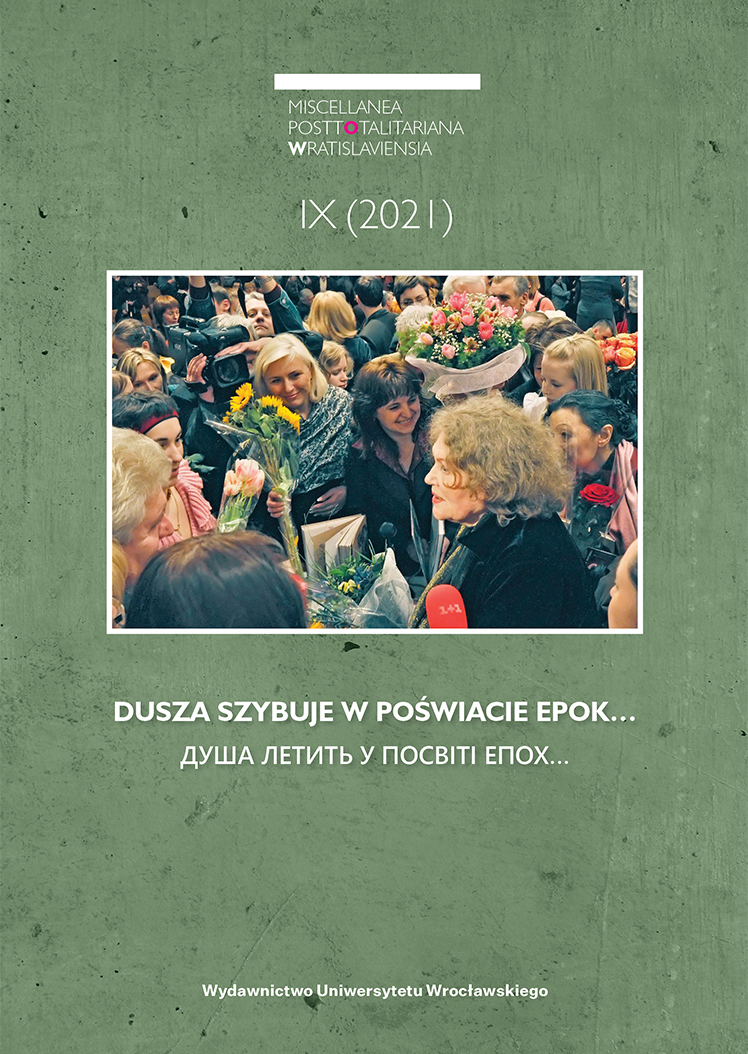

Artykuły

Taken together, individuality, freedom, and time are three fundamental categories in the value system of European civilization. The dissident discourse in Lina Kostenko’s poetry, which covers not only the Soviet, but also the post-Soviet period, is structured precisely around these three categories. If under the Soviet totalitarian regime these categories were subject to strict controls, nowadays they are losing meaning. In the meantime, the issue of Ukraine’s European integration (both political and cultural) is far from being solved. Poetry responds to these challenges through a complex “transformation” of ideas into images, symbols, metaphors. This article examines how different temporal dimensions — cosmic, historical, individual, and ancestral — have been interiorized in Kostenko’s poetry, reaching the dimension of authentic freedom in an existential (and existentialist) sense and the sublimation of this freedom through language-logos. In these forms in which time is being interiorized, one can recognize various philosophical references (especially the conceptions of time in Heraclitus and Saint Augustine, but also in Camus through the image of Sisyphus as well as that of the intellectual’s dissident and rebel nature). During various historical periods, Kostenko’s poetry reclaims the subjectivity of human existence, the right to sovereign existence in cosmic and historical time for an individual person as well as for an entire nation.